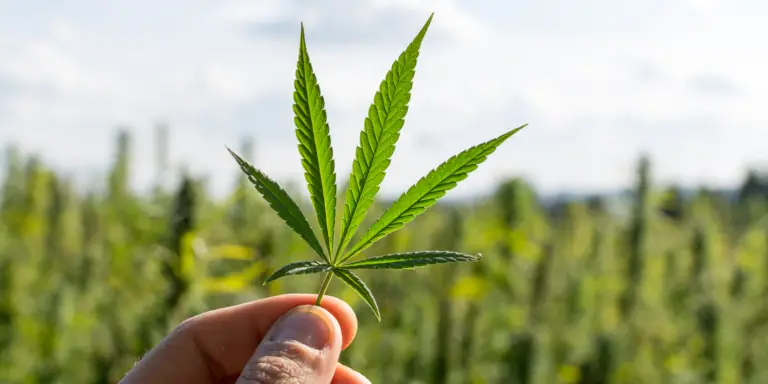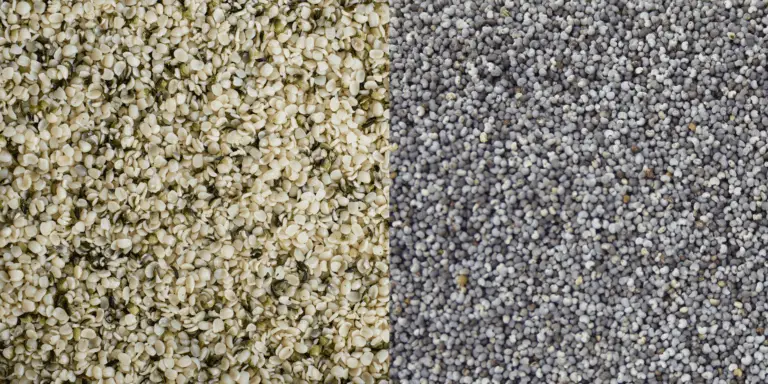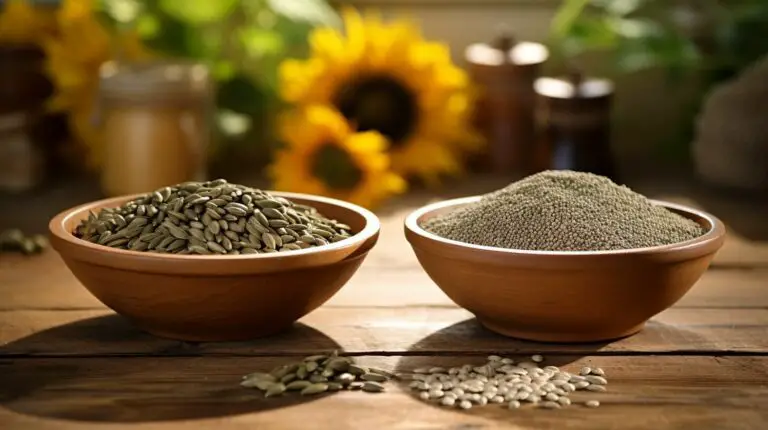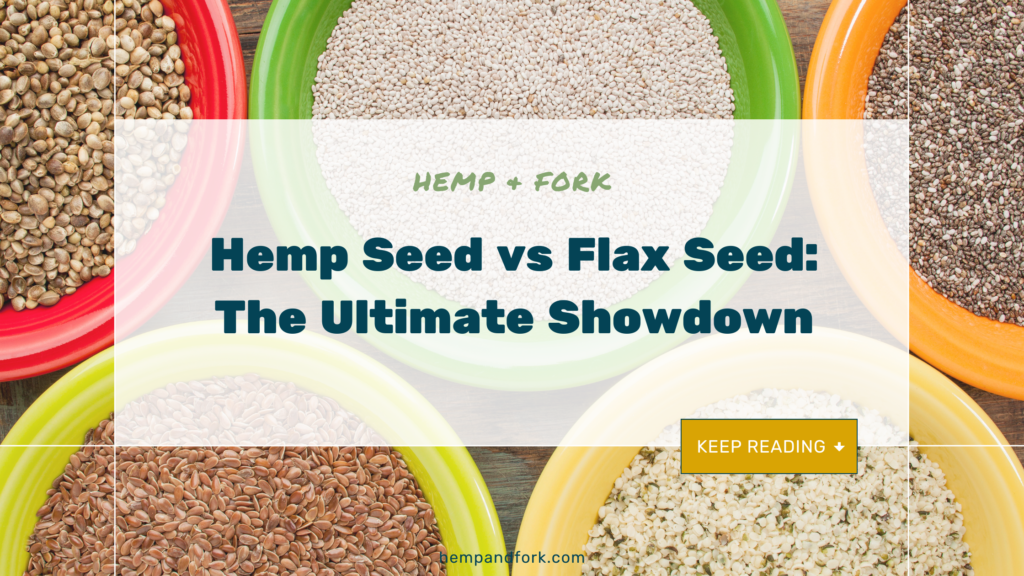
In today’s health-conscious world, seeds have gained immense popularity as nutrient-dense powerhouses. Among them, hemp seed and flaxseed stand out as two of the most sought-after. Both these seeds have carved a niche for themselves in the wellness community, not just for their rich nutritional profiles but also for their versatility in culinary applications. So let’s take a look at hemp seed vs flaxseed!
Introduction to Hemp Seed and Flaxseed
The journey towards optimal health often leads us to nature’s lap, where we discover the myriad benefits of simple, unprocessed foods. Two such gifts from nature that have garnered significant attention in recent years are hemp seed and flaxseed. These seeds, though small in size, pack a punch when it comes to their health benefits.
Hemp seed, known for its perfect balance of essential fatty acids, and flaxseed, celebrated for its high fiber content, are staples in the pantries of health enthusiasts worldwide. Their widespread use in smoothies, salads, and baked goods is a testament to their growing popularity. But beyond their culinary appeal, these seeds have deep-rooted histories that trace back thousands of years.
Historical Background of Flax Seed and Hemp Seed
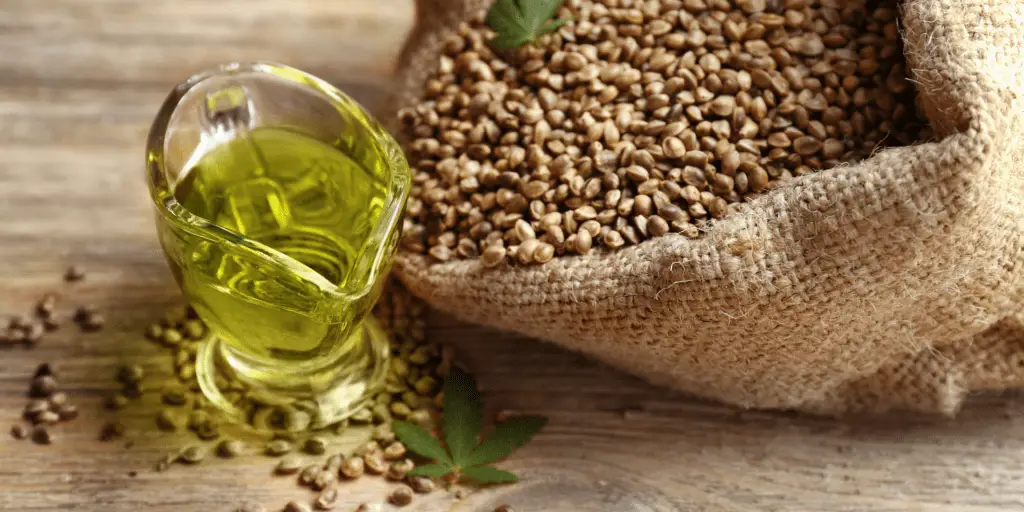
Origins of Hemp Seed
Hemp, a member of the Cannabis sativa plant species, has been cultivated for over 10,000 years. Originating in Central Asia, it’s one of the oldest domesticated crops known to man. The seeds of the hemp plant, commonly referred to as hemp hearts when hulled, have been a staple in various ancient cultures.
- Ancient China: Hemp seeds were consumed for their nutritional benefits and were also used in traditional medicines.
- Early Europe: Hemp was cultivated for its fibers, which were used to make ropes, textiles, and even paper.
- Native American Cultures: Recognized the medicinal properties of hemp and incorporated it into their daily lives.
Origins of Flaxseed
Flaxseed, derived from the Linum usitatissimum plant, boasts an equally impressive history. Often considered one of the first crops domesticated by humans, its use dates back to ancient civilizations.
- Ancient Egypt: Flax was revered not only for its seeds but also for the fibers that were used to make linen. Pharaohs were often buried with linen garments as a display of their status.
- Biblical References: Flax and its oil have been mentioned in the Bible, indicating its significance in ancient times.
- Neolithic Era: Archaeological findings suggest the use of flaxseed in spinning and weaving as early as 30,000 years ago.
| Seed | Origin | Primary Historical Use |
|---|---|---|
| Hemp Seed | Cannabis sativa | Textiles, Food |
| Flaxseed | Linum usitatissimum | Food, Oil |
Both seeds have played significant roles in ancient civilizations, not just as food sources but also for their various other applications, showcasing their versatility and importance throughout history.
Nutrition Comparison: Flaxseed vs Hemp Seed
Hemp Seed Nutrition
Hemp seeds, often referred to as hemp hearts when hulled, are a nutritional powerhouse. Here’s a breakdown of their primary nutrients:
- Fatty Acid Content: Hemp seeds are renowned for their balanced ratio of omega-6 to omega-3 fatty acids, which is typically around 3:1. This balance is believed to be optimal for human health.
- Omega 3: Essential for brain health, reducing inflammation, and promoting heart health. Hemp seeds are a rich source of alpha-linolenic acid (ALA), a type of plant-based omega-3.
- Protein: Hemp seeds are a complete protein source, meaning they provide all the essential amino acids. In fact, by weight, hemp seeds provide a similar amount of protein as beef and lamb.
- Other Essential Nutrients: Hemp seeds are also rich in vitamin E, phosphorus, potassium, sodium, magnesium, sulfur, calcium, iron, and zinc.
For a deeper dive into the distinctions between hemp hearts and hemp seeds, check out our detailed article on hemp hearts vs. hemp seeds.
Flaxseed Nutrition
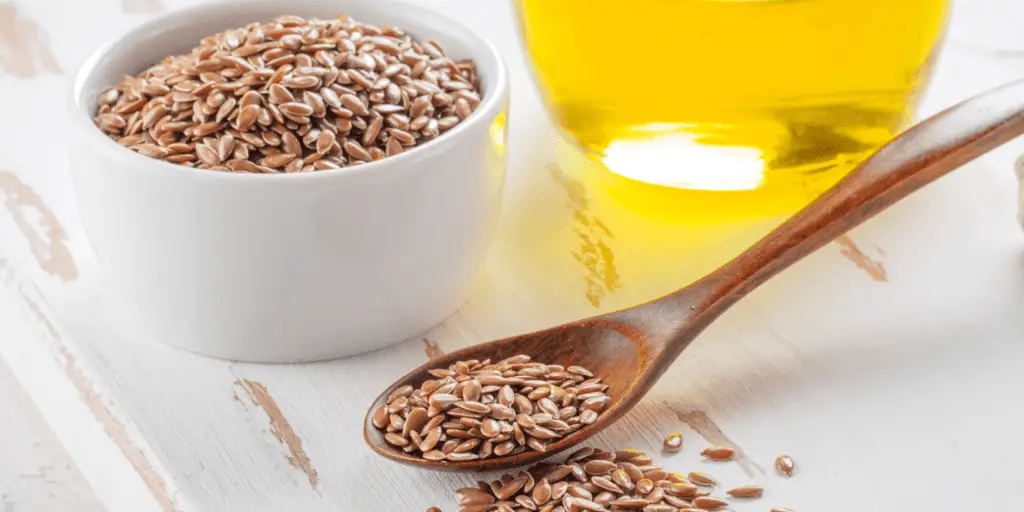
Flaxseeds have been in the human diet for thousands of years. Ground or whole, they offer a myriad of nutritional benefits:
- Omega 3: Flaxseeds are one of the richest plant sources of omega-3 fatty acids. Specifically, they’re high in ALA, which has been linked to various health benefits.
- High Fiber Content: Especially in ground flax, which makes it easier for our bodies to digest and access nutrients. Dietary fiber from flaxseed can help lower cholesterol levels and improve heart health.
- Lignans: Flaxseeds contain up to 800 times more lignans than other plant foods. Lignans have antioxidant properties and may support heart health.
| Nutrient | Hemp Seeds | Flaxseeds |
|---|---|---|
| Protein | High (Complete) | Moderate |
| Fiber | Moderate | High |
| Omega-3 Fatty Acids | Balanced with Omega-6 | Very High |
| Minerals | Rich Variety | Moderate Variety |
Health Benefits: Hemp Seeds vs Flax
Benefits of Hemp Seed
- Cardiovascular Health: The omega-3 and omega-6 fatty acids in hemp seeds can help reduce cholesterol levels in the blood, thereby reducing the risk of heart diseases.
- Hemp Seed Oil: Apart from being used in cooking, hemp seed oil is often used topically due to its skin health benefits. It can moisturize without clogging pores and can help to balance out oily skin.
- Brain Health: The fatty acids in hemp seeds are essential for brain development and function. They also have anti-inflammatory properties that can help with conditions like depression, anxiety, and even Alzheimer’s disease.
And much, much more! Check out this article for the myriad of hemp benefits, 13 Hemp Heart Benefits: The Ultimate Guide.
Benefits of Flaxseed
- Digestive Health: The high fiber content in flaxseeds aids in digestion and can help prevent constipation.
- Potential Health Benefits: Some studies suggest that flaxseeds may help reduce the risk of certain types of cancers, especially breast and prostate.
- Flaxseed Oil: Rich in ALA, flaxseed oil can help reduce inflammation, lower heart disease risk, and improve skin health.

Ayurvedic Perspective on Hemp and Flax Seeds
Ayurveda, an ancient holistic healing system from India, has revered both hemp and flax seeds for their therapeutic properties for centuries. Let’s delve into the Ayurvedic insights on these superseeds:
Hemp Seed in Ayurveda
In Ayurveda, hemp seeds are believed to balance the Vata (air and space) and Kapha (earth and water) doshas, making them beneficial for individuals with these predominant constitutions. They are considered:
- Sattvic: Hemp seeds are thought to promote clarity, harmony, and consciousness.
- Nourishing for the Brain: Their omega-rich profile supports brain health and cognitive functions.
- Promoting Digestive Fire: Hemp seeds can stimulate the digestive system, aiding in efficient digestion and metabolism.
Flax Seed in Ayurveda
Flax seeds, known as ‘Atasi’ in Sanskrit, are highly valued for their cooling and lubricating properties. They are beneficial for:
- Balancing Pitta Dosha: Their cooling nature helps in calming the fire and water elements, making them ideal for those with a fiery disposition or Pitta constitution.
- Supporting Gut Health: Flax seeds are known to promote healthy bowel movements, aiding in detoxification and digestive health.
- Nourishing the Skin: The fatty acid content in flax seeds is believed to hydrate and nourish the skin, giving it a radiant glow.
Incorporating these seeds into one’s diet, keeping in mind one’s unique dosha or constitution, can lead to holistic well-being, aligning the body, mind, and spirit. Ayurveda emphasizes not just the nutritional aspect but also the energetic properties of food, and both hemp and flax seeds play a pivotal role in this ancient wisdom.
Other Seeds in the Mix
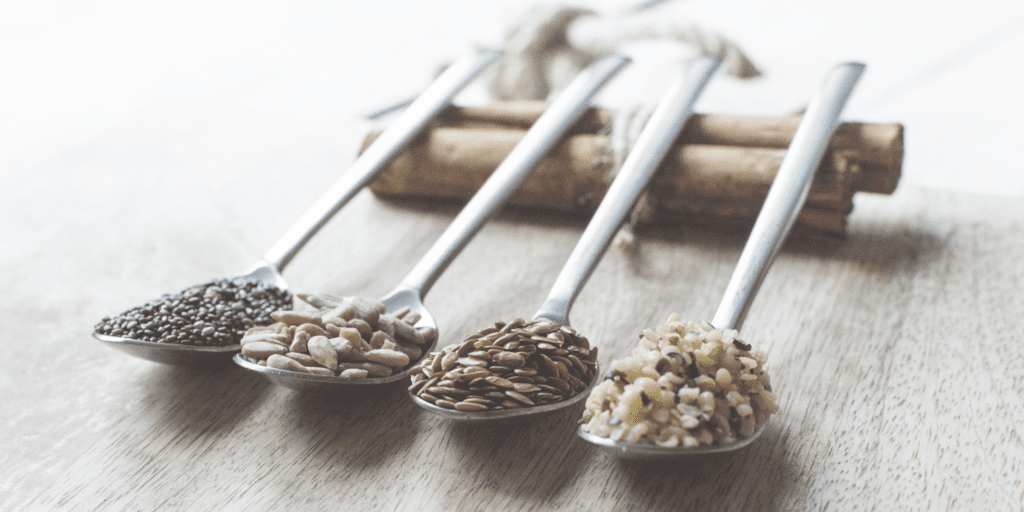
Chia Seeds
Originating from the Salvia hispanica plant native to Central America, chia seeds have been consumed for thousands of years by ancient civilizations like the Aztecs and Mayans.
- Nutritional Profile: Chia seeds are rich in fiber, protein, omega-3 fatty acids, and various micronutrients.
- Health Benefits of Chia: They are known to support cardiovascular health, improve digestion, and provide sustained energy. Their ability to absorb water also makes them great for hydration.
Interested in how hemp seeds stack up against other superfoods? Dive into our comparison of hemp seeds vs. chia seeds and their health benefits for a thorough breakdown.
Hemp, Flax, and Chia
When comparing the three seeds:
- Protein: Hemp seeds lead the pack with approximately 10 grams per serving, followed by chia with around 6 grams, and flaxseeds with about 5 grams.
- Fiber: Chia seeds offer a whopping 10 grams per serving, flaxseeds come in second with 8 grams, and hemp seeds provide about 3 grams.
- Omega-3s: Flaxseeds have the highest ALA content, followed closely by chia seeds. Hemp seeds, while lower in ALA, offer a balanced ratio of omega-6 to omega-3.
Scientific Studies on Hemp and Flax Seeds
The health benefits of hemp and flax seeds aren’t just anecdotal; they’re backed by scientific research. Here’s a look at some notable studies that delve into the nutritional and medicinal properties of these superseeds:
Effects of Dietary Hemp Seed and Flaxseed on Growth Performance
A study available on PubMed Central explored the effects of these seeds on growth performance in animals, underscoring their nutritional advantages.
This study investigated the effects of dietary hemp seed (HS) and flaxseed (EF) on growth, meat fatty acids, liver tocopherol concentration (vitamin E), and bone strength of cockerels. Different combinations of HS and EF were compared in the diet of 541 male Ross 308 cockerels over 35 days.
The group fed a combination of 40 g/kg HS and 60 g/kg EF showed the highest body weight, better feed conversion, and improved bone strength compared to other groups. The study suggests that including HS and EF in the diet of cockerels can enhance their growth and overall health, making them potential beneficial dietary supplements for poultry farming.
The Cardiovascular Effects of Flaxseed and its Omega-3 Fatty Acid
This article explores the cardiovascular effects of flaxseed and its omega-3 fatty acid, alpha-linolenic acid (ALA). Cardiovascular disease (CVD) is a major health concern, and nutritional interventions are being researched to prevent its occurrence. Omega-3 fatty acids, found in marine products like fish oil, have shown significant cardiovascular benefits.
Flaxseed, a plant-based source of ALA, has also been suggested to positively impact CVD based on clinical trials and experimental studies. ALA from flaxseed may reduce the risk of myocardial infarction, sudden cardiac death, and stroke, and it can also lower blood pressure and improve lipid profiles. However, more research is needed to fully understand the cardiovascular effects of flaxseed and ALA.
Nutritional and Medicinal Aspects of Hemp Seeds
This review article discusses the various benefits of hemp as a food and nutritional supplement. Hemp, derived from Cannabis sativa plants with low levels of tetrahydrocannabinol (THC), has significant social and economic value, being used to produce food, textiles, biofuels, and more. Hemp inflorescence contains nonpsychoactive cannabinoids like cannabidiol (CBD), known for its anxiolytic and anticonvulsant effects.
Hempseed is rich in essential amino acids, fatty acids, vitamins, minerals, and fibers, while hempseed oil provides healthy polyunsaturated fatty acids. Hemp sprouts are also rich in antioxidants. Despite its potential, regulations on hemp-derived products vary worldwide due to CBD’s presence in both dietary supplements and pharmaceuticals. The article emphasizes the need for further research and appropriate regulations to ensure the safety and benefits of hemp-derived products for consumers.
Dietary Flaxseed as a Strategy for Improving Human Health
This final study focuses on the potential health benefits of dietary flaxseed, which is rich in omega-3 fatty acids, lignans, and fiber. These compounds have anti-inflammatory, antioxidative, and lipid-modulating properties, making them valuable for both animal and human health. The research explores the effects of flaxseed consumption on various health conditions, including cardiovascular diseases, diabetes, cancers, brain development, menopausal symptoms, skin health, and gastrointestinal health.
The study highlights that flaxseed shows promise in improving cardiovascular health, reducing blood glucose levels in diabetes, and offering protection against certain types of cancers. It also suggests potential benefits for brain development and function, skin health, and gastrointestinal well-being. The findings provide compelling evidence for considering flaxseed as a part of a healthy diet, with no apparent toxicity concerns. Explore the research here.
By referencing these scientific studies, we can better understand the depth of health benefits that hemp and flax seeds offer, making them essential additions to our diets.
FAQ
Conclusion
The journey through the world of hemp seeds and flaxseeds has been enlightening. These seeds, with their rich histories and impressive nutritional profiles, are more than just a health fad. They’re nature’s way of providing us with essential nutrients in tiny, flavorful packages. While each seed has its unique benefits, the key is to find what works best for your body and dietary needs. So, whether you’re team hemp, team flax, or team chia, there’s no denying the power of these superseeds. Embrace them, experiment with them, and let them nourish you from the inside out.



